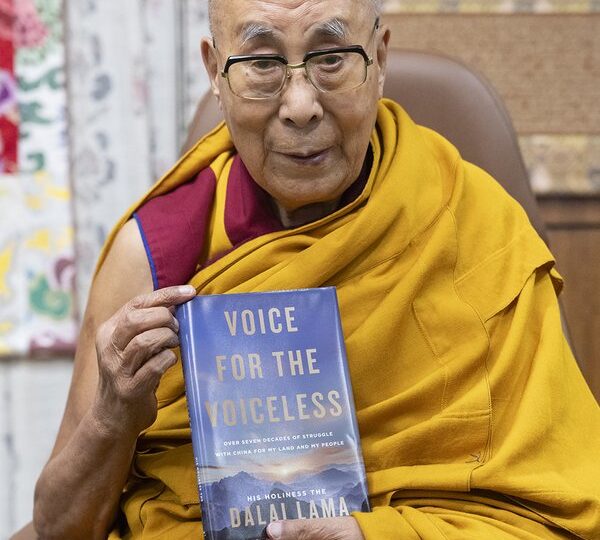The Dalai Lama, the spiritual leader of Tibetan Buddhism, is preparing to celebrate his 90th birthday with a highly anticipated speech for his followers, at an international conference of Buddhist leaders.
The event, organized in India, could include a crucial announcement about his succession – a sensitive issue that could provoke strong reactions from China, which claims control over this religious process.
Among the participants at the meeting is actor Richard Gere, a well-known supporter of the Tibetan cause.
Beijing considers the Dalai Lama, who fled Tibet in 1959 after a failed uprising against Chinese rule, a separatist and asserts that it will choose his successor. The Dalai Lama has stated that his successor will be born outside of China and has urged his followers to reject anyone chosen by Beijing.
Possible Clues
Tibetan Buddhists believe that enlightened monks reincarnate to carry on the spiritual heritage.
The 14th Dalai Lama will turn 90 on Sunday and has stated that he will consult elderly monks and other individuals to share possible clues about where his successor, a boy or a girl, could be found after his passing.
He has previously stated that he might reincarnate in India, where he lives in exile near the town of Dharamshala in the northern Himalayas. He was identified as the reincarnation of his predecessor at the age of two.
Dolma Tsering Teykhang, the vice president of the Tibetan parliament in exile in Dharamshala, stated that it is important for the world to hear directly from the Dalai Lama on this matter, as while China "tries to denigrate him at every opportunity... they are trying to establish rules and regulations on how the reincarnation of the Dalai Lama will be controlled by them."
"China is trying to seize this institution... for political purposes," she said. "We want the reincarnation of the Dalai Lama to be born not only for the survival of Tibet as a culture, religion, and distinct nation but also for the well-being of all humanity."
Thupten Ngodup, the chief oracle of Tibet, said that usually such discussions about reincarnation do not take place while a monk is still alive, but things are different now, mainly due to "Chinese government interference."
Beijing declared in March that the Dalai Lama is a political exile who "has no right to represent the Tibetan people." China maintains that it is open to discussions about his future if he acknowledges that Tibet and Taiwan are inalienable parts of China, a proposal rejected by the Tibetan government in exile.
"As If He Were Not There"
The religious conference this week, taking place for the first time since 2019, will bring together over 100 Tibetan Buddhist leaders and will include a video statement from the Dalai Lama.
The Dalai Lama will participate in prayers organized by the Tibetan government in exile on July 5th and will take part in celebrations of his birthday the next day, according to the schedule provided by the organizers.
He will speak at the festivities for about half an hour. It is expected that the Indian Minister of Parliamentary Affairs, Kiren Rijiju, and other Indian officials will attend the event.
Tibetans pray for his health, especially since he underwent knee surgery in the US last year, although the Dalai Lama told Reuters in December that he could live up to 110 years.
The previous Dalai Lama died earlier than expected, at the age of 58.
The Dalai Lama and Tibetan officials state that there is a system in place for the exile government to continue its political activities, while officials of the Dalai Lama's Gaden Phodrang Foundation will search for and recognize the next Dalai Lama.
The current Dalai Lama established the foundation in 2015, and among its senior officials are several of his aides.
Teykhang and other Tibetan officials have stated that the Dalai Lama has prepared his people for the day when he is no longer present, especially through his 2011 decision to hand over his political role to a democratically elected government, ending a 368-year tradition in which he was both the spiritual and temporal leader of the Tibetans.
"Since he has come in human form, we must accept that there will come a time when he will no longer be among us," said Teykhang. "His Holiness has truly prepared us for that day, making us behave as if he were not here."

